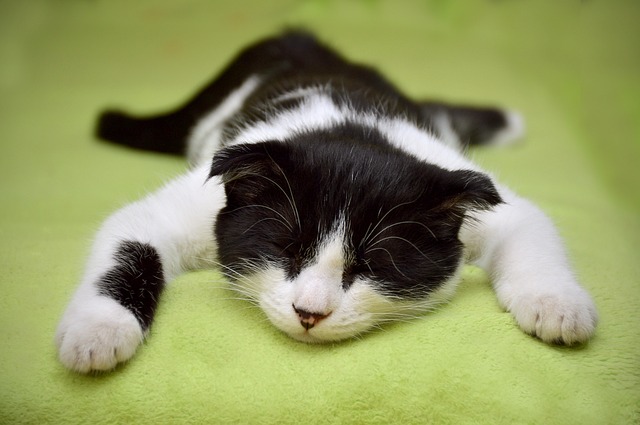Cats are well-known for their love of napping, and it’s not uncommon to see them dozing off at any time of the day. But how much sleep do cats really need? And when should you be worried about your cat’s sleeping habits? Let’s explore this further in this article.
How Much Sleep Do Cats Need?
On average, cats need around 12 to 16 hours of sleep per day. However, the amount of sleep a cat requires can vary based on various factors such as age, health, and environment. Kittens and young cats, for instance, need more sleep than adult cats because their bodies are still developing and require more rest to support their growth. Senior cats may sleep less due to age-related health issues like arthritis or decreased energy levels. Indoor cats may sleep longer than outdoor cats because they don’t need to be as alert to potential predators.
It’s also important to note that cats have a unique sleeping pattern that allows them to conserve energy and be ready to hunt. They are crepuscular animals, which means they are most active during dawn and dusk. To conserve energy and be prepared to hunt, cats have developed a sleeping pattern that allows them to sleep in short bursts throughout the day.
When Should You Worry About Your Cat Sleeping Too Much?
While it’s normal for cats to sleep for long periods, excessive sleep can be a sign of an underlying health problem. If you notice that your cat is sleeping more than usual or seems lethargic, it may be time to take them to the vet for a check-up. Here are some signs that your cat may be sleeping too much:
- Sleeping for more than 16 hours a day: While cats need a lot of sleep, sleeping for more than 16 hours a day may be a sign that your cat is not feeling well.
- Lethargy: If your cat seems tired or lethargic during their waking hours, it may be a sign that they are not getting enough restful sleep.
- Decreased appetite: Cats who are sleeping too much may lose their appetite or show a lack of interest in their food.
- Changes in behavior: Excessive sleep or lethargy can cause changes in your cat’s behavior, such as reduced playfulness or increased irritability.
If you notice any of these signs, it’s important to take your cat to the vet as soon as possible. Early detection and treatment can often lead to a better outcome.
Factors That Can Affect Your Cat’s Sleeping Habits
Several factors can affect your cat’s sleeping habits, including:
- Diet: Diet plays a crucial role in a cat’s energy levels, and cats that are fed a high-carbohydrate diet may experience fluctuations in their energy levels, leading to changes in their sleeping habits.
- Medical conditions: Some medical conditions, like hypothyroidism, diabetes, or kidney disease, can cause increased sleep or lethargy.
- Changes in environment: Changes in a cat’s environment, like a new pet or family member, can also cause stress that affects their sleeping habits.
Creating a Comfortable Sleeping Environment for Your Cat
Creating a comfortable sleeping environment for your cat is important to ensure they get the rest they need. Cats love soft, cozy beds and blankets, so make sure they have a designated sleeping area where they can relax and snooze. Providing plenty of mental and physical stimulation during their waking hours, like interactive toys and scratching posts, can help reduce stress and anxiety, leading to better sleep.
Conclusion
Cats need between 12 and 16 hours of sleep per day on average, but this can vary depending on their age, health, and environment. While excessive sleep can be a sign of an underlying health problem, it’s important to note that cats have evolved to sleep in short bursts throughout




